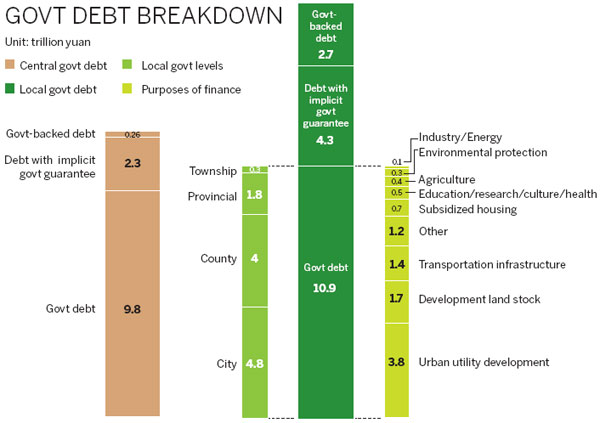Air of cautious optimism on reform

There was, however, a big focus this time on the problem of local government debt, which many hold is the central weakness of the economy, and the statement called for local authorities to be held accountable for their budgets and to "put right any incorrect official performance orientation".
The conference also called for industrial restructuring and an end to excess capacity in certain sectors and the phasing out of obsolete industries in favor of those promoting innovation.
In other areas, the conference wanted to push forward agricultural reform to be less reliant on imports and also improve food security.
There was also emphasis on opening up the economy and the need to set up further free trade zones, such as the one in Shanghai launched last year.
This is likely to hold the key as to the pace of the opening up of China's capital markets, which is seen as one of the most risky but at the same time vital reform processes the economy has to withstand.
Shuang Ding, senior China economist at banking group Citi in Hong Kong, says the risk of anticlimax following the Third Plenum had been avoided and it was clear the government was serious about economic reform.
"I would say that it is further confirmation that the leaders are very determined to push ahead with reforms."
Ding, a former economist at the International Monetary Fund, believes the reform agenda still has an inbuilt conservatism, and he says the government is likely to stick to a 7.5 percent growth target for 2014.
"This is one of the key messages I got ... that the government is not ready to sacrifice growth in a very significant way and that they emphasize that a stable economic and social environment is still a necessary condition for reform."
He says he can understand the government's caution on this.
"I think not only policymakers but I would say most in the financial markets are not ready to accept below 7 percent growth yet. I think that would be a real gamechanger."
Michael Power, global investment strategist at Investec Asset Management, based in Cape Town, believes the conference indicated the government is intent on adopting a major reform strategy.
"My essential reading is that the authorities are going to surprise on the upside with regard to taking the tough decisions on implementing reform, even if this has the effect of marginally reducing GDP growth," he says.
"I think they realize that 7 to 8 percent real local currency growth, or some 13 percent if you add back inflation and currency appreciation, is hardly modest for a country which already ranks as the world's second-largest economy."
Ruchir Sharma, head of emerging markets and global macro at Morgan Stanley in New York, and author of Breakout Nations: In Search of the Next Economic Miracles, says he was looking for pointers for growth from the conference.
"I will be more encouraged if China relaxes its growth target to below 7.5 percent," he says.
"I just think the current level of growth is just too high for a middle-income economy, and especially when it is taking on so much additional debt to meet that target."
Today's Top News
- Takaichi must stop rubbing salt in wounds, retract Taiwan remarks
- Millions vie for civil service jobs
- Chinese landmark trade corridor handles over 5m TEUs
- China holds first national civil service exam since raising eligibility age cap
- Xi's article on CPC self-reform to be published
- Xi stresses improving long-term mechanisms for cyberspace governance































